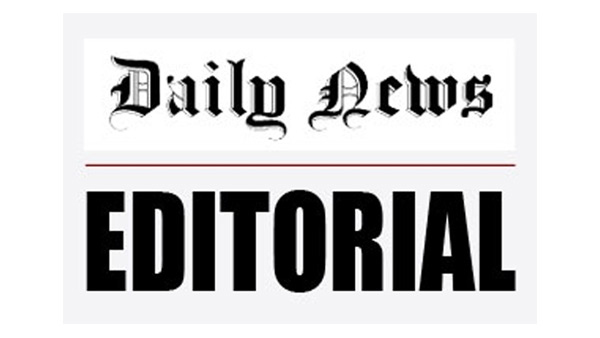Democracy can many mean many things to many people, but at its core is the idea that people wield the ultimate power over their own affairs and destiny. The ancient Greeks were the first to practise democracy, a combination of two Greek words – ‘demos’ meaning whole citizen living within a particular city-state and ‘kratos’ meaning power or rule.
It was called a Direct Democracy, because everyone in a given village or town had a voice or a ‘vote’ in gatherings that decided on various aspects of life. Switzerland is the only country that still practises direct democracy via frequent referendums. All other democratic countries have opted for participatory democracy, where the people elect representatives to speak on their behalf.
Sri Lanka is one of the few countries in Asia to have universal franchise (from 1931) and regular elections, the process by which we select representatives to Parliament and other such bodies. In other words, we have always cherished the practice of democracy, while some other countries in the region saw military or authoritarian Governments. This is a matter of pride for Sri Lanka as we celebrate the International Day of Democracy today, September 15.
Democracy is as much a process as a goal, and only with the full participation of and support by the international community, national governing bodies, civil society and individuals, can the ideal of democracy be made into a reality to be enjoyed by everyone, everywhere.
The values of freedom, respect for human rights and the principle of holding periodic and genuine elections by universal suffrage are essential elements of democracy. In turn, democracy provides the natural environment for the protection and effective realization of human rights. These values are embodied in the Universal Declaration of Human Rights and further developed in the International Covenant on Civil and Political Rights, which enshrines a host of political rights and civil liberties underpinning meaningful democracies.
The link between democracy and human rights is captured in Article 21(3) of the Universal Declaration of Human Rights, which states:
“The will of the people shall be the basis of the authority of government; this will shall be expressed in periodic and genuine elections which shall be by universal and equal suffrage and shall be held by secret vote or by equivalent free voting procedures.”
The rights enshrined in the International Covenant on Economic, Social and Cultural Rights and subsequent human rights instruments covering group rights are equally essential for democracy as they ensure an equitable distribution of wealth, and equality and equity in respect of access to civil and political rights.
Democracy is also about checks and balances, so that one person or institution cannot ride roughshod over the will of the people. This is why, in our Constitution as well as in many other Constitutions around the world, there is a fine balance among the powers vested in the Executive (President or Prime Minister as the case may be), Legislature (Parliament or similar body) and the Judiciary. In most countries, the media is considered as the Fourth Estate (after the above three) as a vibrant media is one of the fundamental features in a democracy.
But democracy is fragile. Recent events in Myanmar and Guinea prove that democratic Governments can be toppled overnight by other forces hell bent on authoritarianism. It is important for democracies to be fundamentally strong and resilient to ward off such attempts. Besides, democracy is not only about holding elections on time – it is a whole gamut of decisions taken on behalf of the people.
Democracy faces many threats from many quarters. Education is one of the primary protectors of democracy as an educated generation is more likely to defend it in turn. It is also vital for the voters to give preference to educated and professional candidates at elections who will be better guardians of democracy. Terrorism, including cyber-terrorism, is a huge threat to democracies everywhere. Just a few days ago, the world marked the 20th anniversary of 9/11, which was a direct challenge and affront to democracy. We experienced a couple of years ago the devastating effects of online radicalisation of young minds. It is thus also vital to develop media literacy and digital safety and fight misinformation, disinformation and hate speech.
Although the world has been practising democracy for centuries, women have still not got their fair share of governance. Sri Lanka, which produced the world’s first woman Prime Minister (Sirimavo Bandaranaike) in 1960 and later, a woman President (Chandrika Bandaranaike Kumaratunga), have less than 10 percent women’s representation at all levels of the political ladder. It is still very difficult for professionally qualified young women with no family political connections to break into politics. There are also factors such as the lack of funds and intimidation by male candidates that inhibit the entry of women into politics. This picture should be changed.
The people must also participate more pro-actively in the exercise of democracy. They must cherish the vote and use it wisely. Only then will democracy be able to withstand a multitude of challenges from within and without.



Add new comment